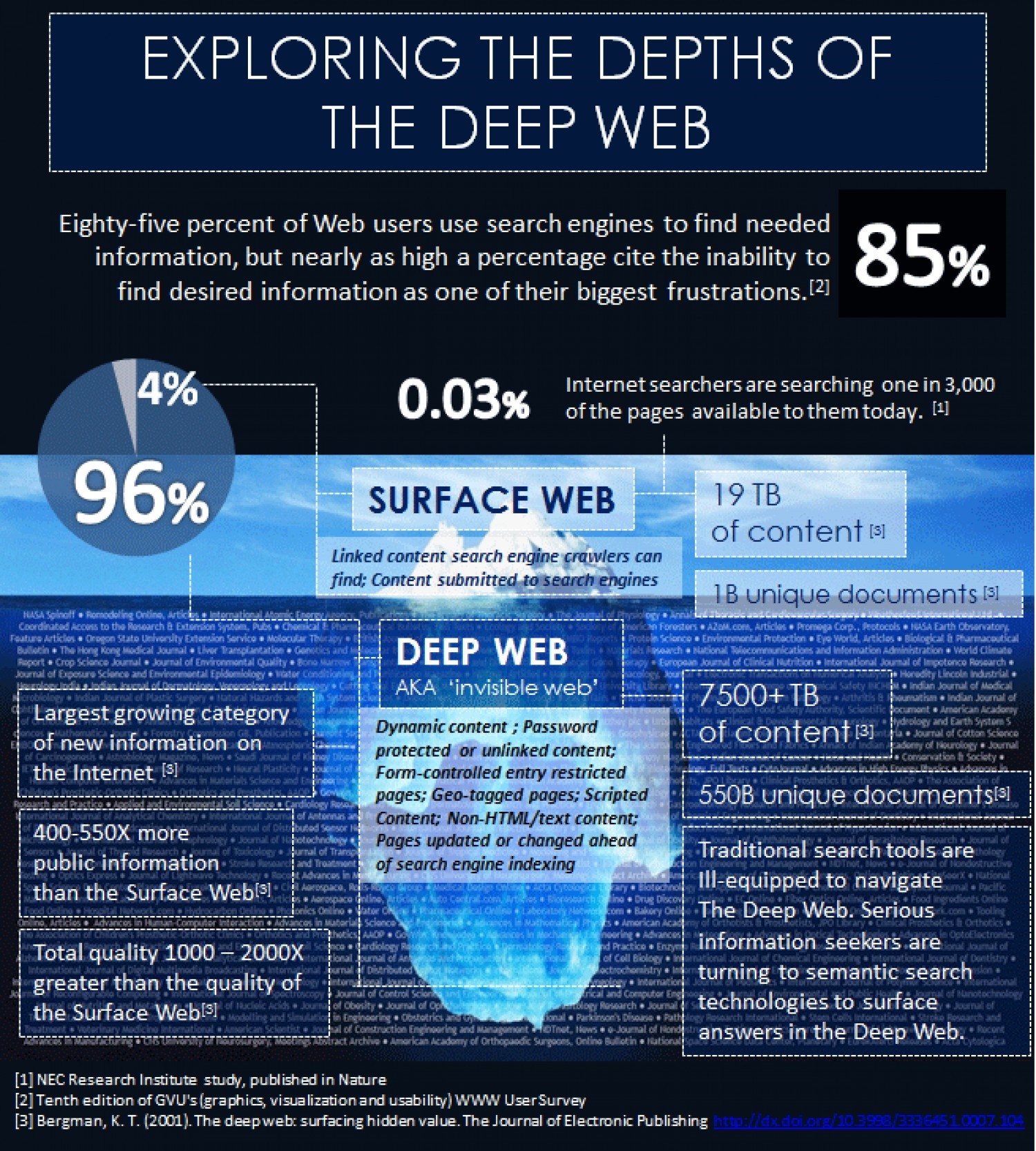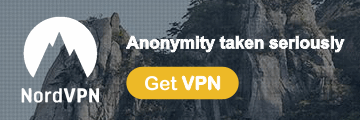All along, something had been building up in parallel to the Internet as we know it. Known as the deep web, and its counter-culture counterpart dark web, this part of the Internet is actually more far-encompassing than the one that we know.In fact, the clearnet—or the publicly-accessible web, as we know it—is thought to comprise only about 4 percent of all information online.
The rest is considered “deep”, which involves data stored in private repositories and is, for the most part, not available for open and free access.
At the very least, privacy-conscious users can turn to Onion routing to help minimize their exposure to services that collect personal data, which means virtually any free social network, search engine or email service out there.

So are the deep and dark web essentially bad? Just like the Internet-at-large or the surface Internet, there are always two sides to the story. There are agents for good and productive usage, and there are those that use the platforms for not-so-noble deeds (cyberbullying and terrorist network recruitment come to mind).



